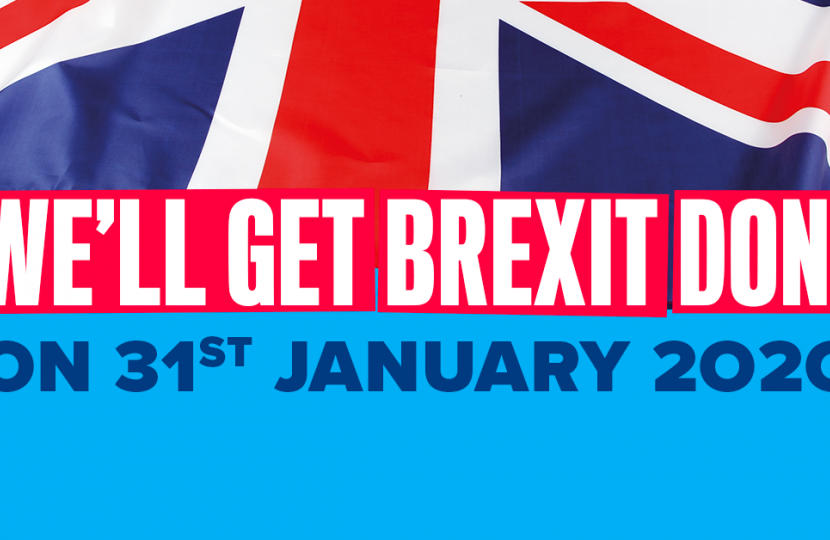
MPs have given their final backing to the bill that will implement the UK government's Brexit deal.
The Commons voted 330 to 231 in favour of the Withdrawal Agreement Bill and it will now pass to the House of Lords for further scrutiny next week.
The bill covers "divorce" payments to the EU, citizens' rights, customs arrangements for Northern Ireland and the planned 11-month transition period.
The UK is due to leave the EU on 31 January.
The bill comfortably cleared its third reading in the House of Commons, as expected, with a majority of 99. All 330 votes in favour were Conservative.
It took just three days for the bill to pass the remaining stages in the Commons, after MPs gave their initial approval to the legislation before the Christmas recess.
MPs voted to back the Prime Minister's plan for the UK to leave the EU on 31 January.
- This People’s Government is delivering on the promise we made to the British people to get Brexit done.
- Today, Boris Johnson’s great new deal has passed its Second Reading in Parliament, as we finally release the country from the stranglehold of indecision, restoring confidence to people and businesses and get Brexit done.
- Yesterday’s Queen’s Speech set out not only how we will leave the EU but how we will maximise the opportunities of Brexit – taking back control of our money, our laws, our trade and our borders, introducing an Australian-style points-based immigration system and investing in the NHS.
- We will work around the clock to repay the trust millions of voters placed in this People’s Government and that work starts with getting Brexit done.
- At the beginning of the new decade, at the beginning of a new dawn for our country, our Parliamentarians will return to Westminster to immediately finish the job, take us out of the EU on 31 January and move this country forward.
The Withdrawal Agreement Bill will:
- Ensure that the UK ceases to be an EU Member State at 23:00 on 31 January 2019. At this point the EU Communities Act 1972 will be repealed and we will enter the implementation period.
- Take Britain out of all EU laws. We will be able to change our laws in a huge number of areas – from product standards to fishing rules to farming subsidies (leaving the hated CFP and CAP) – where we are currently bound by EU rules.
- Allow us to strike our own free trade deals. We will have an unqualified right to strike our own trade deals around the world, and the whole UK will participate in them.
- End the direct jurisdiction of the European Court in Britain. It will be our courts, applying our laws, which will be the highest authority in the land.
- Mean we will be in control of our taxes. We will be able to change VAT rules and other tax laws that are currently determined by Brussels.
- Ensure Northern Ireland will be in the UK customs territory. The deal we have negotiated makes clear that Northern Ireland remains part of the UK’s customs territory and will benefit from the free trade deals we strike.
- Abolish the anti-democratic backstop. The people of Northern Ireland will be in charge of the laws that they live by, and – unlike the backstop – will have the right to end the special arrangement if they so choose.
- We will avoid the trap of further dither and delay – by ruling out any extension to the implementation period beyond 2020.
This People’s Government will maximise the opportunities of Brexit. We will:
- Bring an end to free movement and introduce an Australian-style points based system – Our Immigration and Social Security Co-Ordination Bill will create a modern, fair, points-based immigration system which will welcome skilled workers from across the world to contribute to the United Kingdom’s economy, communities and public services.
- Enhance and protect workers’ rights – as the UK leaves the EU we will introduce a new Employment Bill, making Britain the best place in the world to work.
- Transform environmental protections – our new Environment Bill will transform our environmental governance once we leave the EU by putting environmental principles into law, introducing legally binding targets, and establishing a new Office for Environmental Protection.
- Re-set our foreign policy in 2020 through an Integrated Security, Defence and Foreign Policy Review led by the Prime Minister. This will be the most radical reassessment of our place in the world since the end of the Cold War, covering all aspects of international policy from defence to diplomacy and development.
